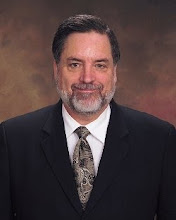The Cosmological Argument - Part 2
I'm cutting to the chase, as the saying goes, and get right to the point. The comments are available for questions and feedback.
Einstein's General Relativity predicted a expanding universe that has been verified by the Big Bang Theory which postulates the Universe had a beginning. Scientists may argue over the details, but, ultimately, long ago, before time 0, there was no Universe, then suddenly, it sprang into existence.
Some thing caused the event or events that resulted in the Universe - the Universe did not appear on it's own and there's no definitive reason to believe that it did. Moreoever, in 1965 scientists Arno Penzias and Robert Wilson discovered cosmic background radiation from the initial Big Bang explosion that confirmed its occurrence. They won a Nobel Prize for their discovery.
Next, in 1989, the NASA Satellite COBE (Cosmic Background Explorer) detected primordial "Galactic Seeds" that formed the galaxies of the Universe. From these seeds, the Universe was formed and structured.
Either the Universe began to exist or it has always existed. The evidence provided by Galactic Seeds, the Big Bang, and the Laws of Thermodynamics more than prove the Universe had a beginning.
Are they absolute proof? No, but certainly, they are more experimentally verfiable than the alternative that the Universe had no beginning.
Thus, the weight of the evidence establishes the truth of my second proposition. Since both premises have been shown to be verificably true, it is certainly reasonable to believe the Universe was caused by some thing.
What was that some thing? In the next post, I'll connect that thing with God.
see:
Big Bang Theory
COBE
Galactic Seeds


2 Comments:
After reading The Cosmological Argument - Part 1 (your blog topics appear in reverse order but this time I didn't succumb to the temptation to post before I read them all :) I'll agree with Proposition 1 but disagree with Proposition 2. See my musings in the "A Layman's Primer on Thermodynamics" thread for the basis for this following theory of a universal environment where a big bang is simply the point at which matter and energy "reappear" in our space-time continum.
Alternative dimensions are postulated in current physics theories on the nature of the universe. Particularly in the instance of a black hole where space-time seems to be fundamentally warped. During a big bang where all the matter in the entire universe must be located in a single small region, the magnitude of a space-time warp must be unimaginable - but I think it is more reasonably a place where matter and energy transfer through a dimensional boundary instead of a point where they are spontaneously created. Admittedly there is no science I know of to back any of this up, but I don't think we can presume with too much confidence that the Big Bang was necessarily a creation event.
Note that I am not arguing that the universe was not created! I am arguing that (1) there is more to the universe than matter and energy which must be taken into account, and that (2) that which appears to be an initial event cannot in itself prove the existence of a creator until we can prove that it was exclusively the spontaneous creation of all matter and energy of which we know.
----
Now, if I may influence the direction of future discussion:
We are very used to thinking like the big bang occured within a huge space. But relativity shows us that matter, enegy, space, and time are all related. I think it is more reasonable to consider that all four concepts "appeared" toghter -- not just matter and energy. Thus far I actually see five fundamentally orthogonal concepts that make up our existence: matter, energy, space, time, and consciousness, none of which can be derived from another other, but none of which can exist without the others. (ok, consciousness is questionable - but this if the tree falls in the forest with no one to hear it: does it make a sound? problem - or consciousness may play a bigger yet known role in the conclusion of the universe) Thus, only thinking of matter and energy seems to be like thinking microscopically about a macroscopic event - a recipe for paradox.
Keep in mind I am arguing for the most reasonable case as provided by the evidence. No doubt many speculative alternatives can be proposed, but reasoning from the available data seems to me to be the preferred approach than reasoning from speculation, if the data exists, and it does.
Regarding the big bang, of course it's incorrect to think it occurred inside a huge space because there was and is no space for it to expand into.
Moreover, the relationships described in relativity are mathematically precise. We need to be careful not too abstract their solutions to unsupportable positions.
Post a Comment
Subscribe to Post Comments [Atom]
<< Home